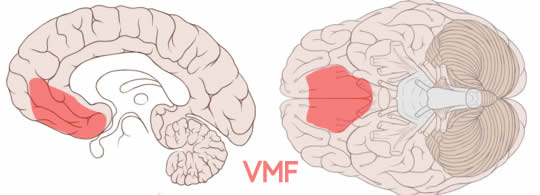Closer to the Buy Button?
A specific part of the brain responsible for making decisions about value has been identified by neuroeconomics researchers at the University of Pennsylvania. Using fMRI, psychology professor Joseph Kable has shown that the ventromedial frontal cortex, or VMF, plays a key role in decisions involving value.
The study used subjects with normal VMFs as well as some with VMFs damaged by injury or illness. The subjects were presented with a series of choices involving juice boxes and chocolate bars in groupings which implied that the candy bars were three times as valuable as the juice boxes. Subjects with normal VMFs learned the valuation and made consistent choices when presented with different combinations of products. Subjects who had suffered VMF damage made choices that did not reflect the values of the products and which were often inconsistent with previous choices.
Assessing the value of a product has been shown to be a key part of the brain’s process for making a purchase decisions. Earlier fMRI work by researchers like CMU’s George Loewenstein shows that prices that seem unfair cause a pain reaction in the brain.
Presumably, the conclusive identification of the brain structure responsible for value determination will give neuroeconomics and neuromarketing researchers an additional focus as they work to determine the total process for how the brain makes purchase decisions. More to the point for commercial neuromarketing firms that have the capability of measuring VMF activity, this work could advance the ability to help marketers determine product configurations and price points that consumers feel represent a good value.
It seems that the VMF might be the closest thing to a “buy button” yet discovered, although the full buying decision process involves many other areas of the brain. “Pushing” the VMF likely involves offering the consumer a great value, which even without brain scan data is recognized as a pretty good marketing technique.
Illustration by Patrick J. Lynch

